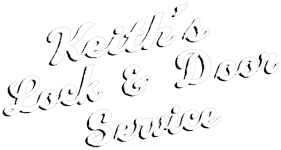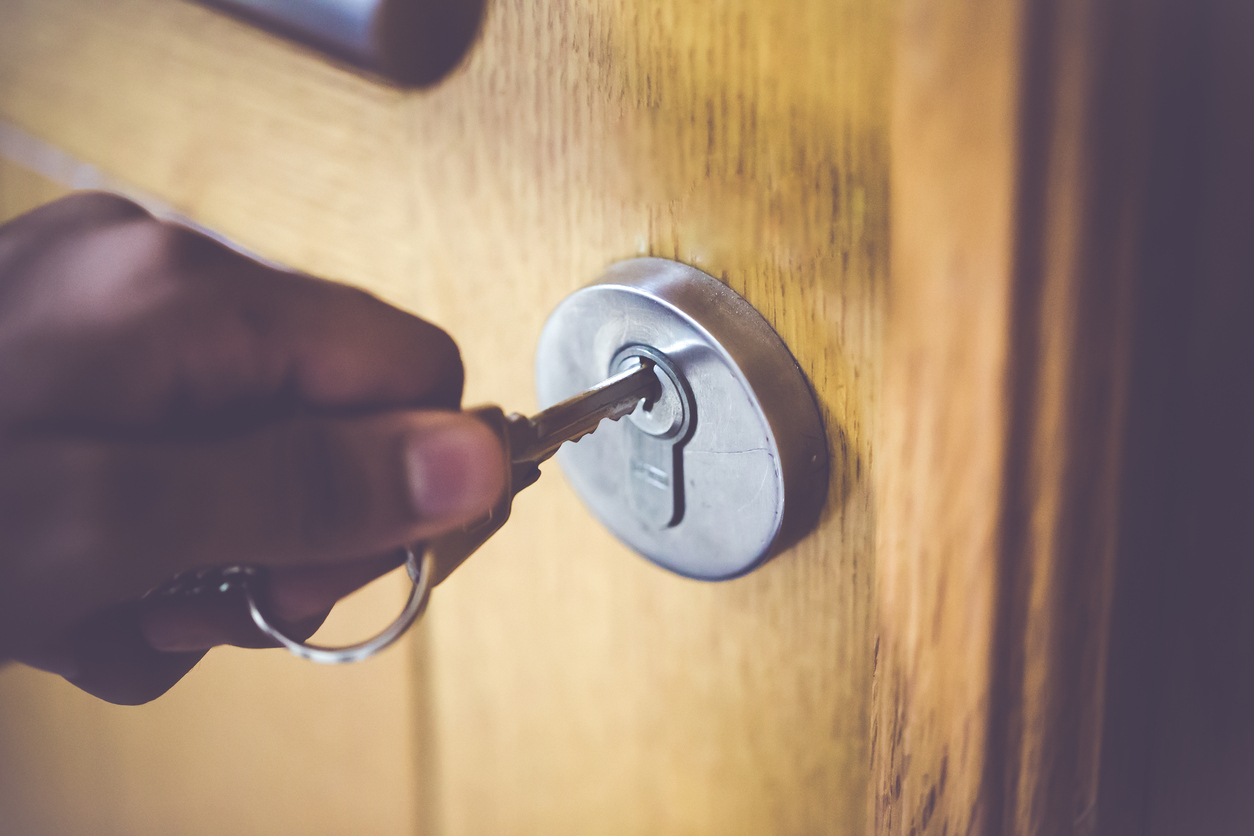When it comes to securing your home, choosing the right lock is essential. With so many options available, it can be overwhelming to determine which common lock best suits your needs. At Keith’s Lock & Door Service, we specialize in providing high-quality residential locksmith services to homeowners throughout the Valley. In this guide, we’ll break down the most common lock types and their pros and cons to help you make an informed decision.
- Deadbolt Locks
Deadbolts are one of the most secure locks for residential doors. These common locks come in three main types:
- Single Cylinder: Operates with a key on the outside and a thumb turn on the inside. Ideal for standard home security.
- Double Cylinder: Requires a key on both sides, providing extra security but less convenience.
- Keyless Deadbolt: Uses a keypad or smart lock technology instead of a key, making it a great option for those who want keyless entry.
Pros: High security, resistant to forced entry.
Cons: Double-cylinder models can be a fire hazard if you need a key to exit in an emergency.
- Knob Locks
Knob locks are commonly found on interior and exterior doors, but they are not the most secure option.
Pros: Easy to install and convenient for interior doors.
Cons: Vulnerable to forced entry since the lock is built into the knob itself.
- Lever Handle Locks
Often used in commercial settings, lever handle locks are also a great option for homes, especially for people with disabilities.
Pros: Easier to operate than knob locks, stylish appearance.
Cons: Not as secure as deadbolts.
- Mortise Locks
Mortise locks are installed inside the door rather than on the surface, making them highly durable and secure.
Pros: Strong and long-lasting, great for heavy-duty security.
Cons: More expensive and requires professional installation.
- Smart Locks
For those looking for modern convenience, smart locks offer keyless entry through Bluetooth, Wi-Fi, or fingerprint access.
Pros: No need for keys, can be controlled remotely via smartphone.
Cons: Dependent on power and internet, can be vulnerable to hacking.
- Padlocks
Padlocks are portable locks that can be used for gates, sheds, and storage units.
Pros: Versatile and weather-resistant options available.
Cons: Can be cut or broken if not high-quality.
- Cam Locks
These common locks are typically used in cabinets, mailboxes, and filing cabinets, cam locks provide a simple locking mechanism with a key.
Pros: Easy to install, ideal for securing small compartments.
Cons: Not suitable for high-security needs.
- Rim/Mortise Cylinder Locks
These are often used on glass doors and exit devices and require a compatible lock body to function.
Pros: High durability, great for commercial settings.
Cons: Requires specific hardware to work effectively.
- Euro Cylinder Locks
Common locks in European homes, these locks are often found in uPVC and composite doors.
Pros: Easy to replace and upgrade.
Cons: Vulnerable to lock snapping if not a high-security model.
- Jimmy-Proof Deadbolts
Surface-mounted deadbolts that interlock with the strike plate, making them more resistant to forced entry.
Pros: Excellent for apartment security, easy to install.
Cons: Not as common in traditional residential homes.
Which Lock Is Right for You?
Choosing the right lock depends on your security needs and lifestyle. Whether you need a high-security deadbolt, a smart lock for convenience, or a durable mortise lock, Keith’s Lock & Door Service has you covered. Contact us today to find the best lock for your home!







